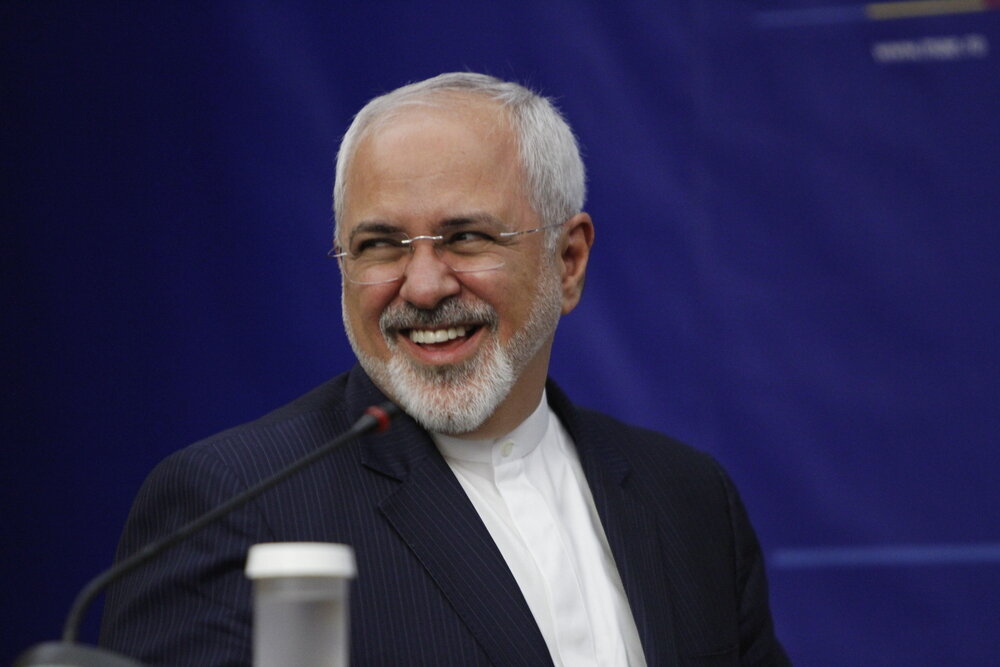Sanctioning Iran’s foreign minister is futile: FT

TEHRAN - In a commentary on Tuesday, the Financial Times criticized the U.S. sanctions against Mohammad Javad Zarif, Iran’s foreign minister, saying the Trump administration has “probably blocked the best path back to mediation” by sanctioning Zarif who is “considered by his peers as one of the canniest diplomats around.”
Following is the text of the article written by David Gardner:
U.S. President Donald Trump’s administration tightened its cordon sanitaire around Iran last week, imposing sanctions on Mohammad Javad Zarif, the foreign minister who negotiated the nuclear deal Iran signed with six world powers in 2015 — and which the U.S. president unilaterally ripped up last year.
It came after the U.S. listed the Islamic Revolution Guard Corps as terrorists in April and the extension of sanctions over the supreme leader, Ayatollah Ali Khamenei, in June.
These moves are the provocative packaging for a draconian U.S. effort to try to strangle Iran’s economy, in particular by cutting off its oil and gas exports and threatening to lock countries and corporations that do business with Tehran out of the dollar system.
In light of this so-called “maximum pressure” policy, sanctioning Zarif looks less an escalation than a gratuitous gesture — possibly because the Iranian diplomat turned down an offer from Trump of talks in the Oval Office. Zarif brushed off the move against him, thanking the U.S. president “for considering me such a huge threat to your agenda”.
The electrifying tensions in the Persian Gulf are lethal to the free-wheeling and free-trading economy the UAE depends on for its prosperity.
Zarif is considered by his peers as one of the canniest diplomats around. He would have to have been to negotiate the 2015 nuclear deal and overcome the visceral mistrust between Iran and the U.S.
That seems to be what so piques Trump and his extremist aides, John Bolton, national security adviser, and Mike Pompeo, secretary of state: that Iran can keep someone as plausible and articulate as Zarif in play alongside such figures as Qassem Soleimani, commander of the IRGC’s Quds force, the foreign legion of the armed force.
U.S. tactics, insofar as it is possible to make sense of Trump’s swings between tweeted offers of “unconditional talks” with Iran and threats to wipe the country off the map, appear to be to try to mirror this by keeping the threat of war and the prospect of diplomacy simultaneously in play.
Neither option looks to have substance. It is hard to see the U.S. — much less its regional allies, Israel and Saudi Arabia — committing the sort of forces that would be necessary to bring down the government in Tehran. Ayatollah Khamenei and the IRGC will not talk while under sanctions and the threat of regime change.
Yet, as tit-for-tat skirmishing continues in the Persian Gulf, including sabotage and seizure of foreign oil tankers by the IRGC, and the shadowy war between Israel and Iran-aligned forces in Syria continues, the risk of a miscalculation that sparks a conflict rises alarmingly. To take one example, we still do not know why Trump in mid-June at the last minute cancelled air strikes in reprisal for Iran shooting down an American drone, but we do know the U.S. air force was on its way.
Ostensible U.S. incoherence, and a perception of Iranian imperturbability, is changing regional behavior — starting with American allies such as the United Arab Emirates.
The UAE, the most militarily extrovert Persian Gulf power, even if dwarfed in size by Saudi Arabia, is pulling in its horns. It is scaling back its intervention in Yemen’s war with Iran-backed Houthis, maybe towards withdrawal. Long militant in their advocacy against Iran, the Emiratis seem worried and wary of the colossal cost of all-out war.
The electrifying tensions of the Persian Gulf stand-off between the Saudi-led alliance and Iran-aligned bloc are lethal to the free-wheeling and free-trading economy the UAE depends on for its prosperity. Last week, as tanker incidents in UAE waters proliferated, an Emirati coast guard delegation visited Tehran for the first time in seven years.
The UAE, ironically, finds itself in a similar position to neighboring and gas-rich Qatar, which it has blockaded along with the Saudis since 2017 for being soft on Iran and siding with Islamists in the Arab upheavals after 2011. Qatar, too, had to learn lessons about over-reach. It has since won back favor in the court of a Trump administration initially disposed to side with the Saudis and Emiratis.
That is unlikely to happen to Zarif, which is unfortunate since, by sanctioning him, the administration has probably blocked the best path back to mediation.
The International Crisis Group, the Brussels-based NGO devoted to anticipating and preventing violent conflict, likens the present pass in the Persian Gulf to 1914 in Europe on the eve of the first world war. It is right. A shot fired now in the Middle East will reverberate around the world. There really is reason to take fright.
Leave a Comment